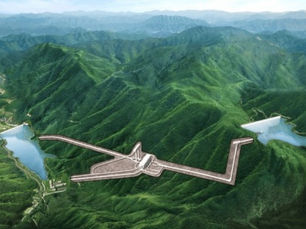Focus on renewables: Philippines and Indonesia boost energy cooperation
- Energy Box

- Jan 12, 2024
- 2 min read
In a significant diplomatic stride, President Ferdinand Marcos Jr. of the Philippines and Indonesian President Joko Widodo oversaw the signing of a Memorandum of Understanding (MOU) on energy cooperation between the Ministry of Energy and Mineral Resources of Indonesia and the Philippine Department of Energy at Malacañang Palace.
Energy Secretary Raphael P.M. Lotilla expressed that this MOU marks a crucial step in reinforcing and modernizing the enduring energy collaboration between the two nations. It aligns with the Philippines’ pursuit of higher energy security through diplomatic efforts led by President Marcos.
The agreement focuses on facilitating cooperation, particularly during periods of critical supply constraints on energy commodities like coal and liquefied natural gas (LNG). Both parties are keen on fostering collaboration across economic, environmental, and geopolitical dimensions. This includes joint efforts in energy transition, renewable energy, demand-side management, electric vehicles, and alternative fuels such as hydrogen, ammonia, and biofuels.
Previous bilateral agreements primarily involving state-owned entities are being adjusted to accommodate the growing role of the private sector in both countries’ energy landscapes. Secretary Lotilla highlighted the shared energy concerns between Indonesia and the Philippines, emphasizing the potential benefits of heightened cooperation.
Both countries rank second and third globally in installed geothermal generation plants, and they are seeking a transition from coal to cleaner technologies. Natural gas, including LNG, is identified as a suitable transition fuel. The private sector’s involvement in this technology aims to address the variability of renewable energy capacity additions and ensure the reliability and security of the power system.
Indonesia and the Philippines, as major sources of minerals essential for the energy transition, possess vast potential for solar, wind, and ocean energy production. Their collaboration extends to advocacies during negotiations on the United Nations Convention on the Law of the Sea, emphasizing shared views on exclusive economic zones and continental shelves.
Highlighting the historical coal trade relationship, Secretary Lotilla noted the Philippines’ dependence on Indonesian coal, constituting nearly 98% of total Philippine coal imports in 2022. However, challenges arose with the Indonesian coal export ban in January 2022, leading the Philippines to diversify its coal sources. Diplomatic efforts, including bilateral meetings and assurances from Indonesian Energy Minister Arifin Tasrif, have been instrumental in securing a steady coal supply from Indonesia.
The MOU signifies a forward-looking commitment to address energy challenges collaboratively, aligning with global trends toward sustainability and clean energy.















Comments